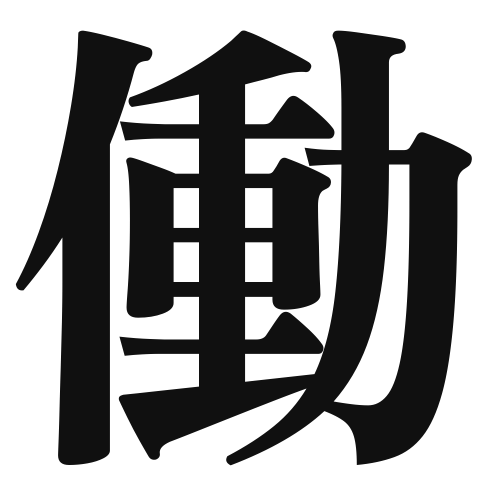1. Overview of Meaning
The kanji 働 (pronounced “dō” or “hataraku”) means “to work” or “to labor.” It represents the concept of engaging in physical or mental effort to achieve a goal or complete a task.
2. Formation and Radical
The kanji 働 is a compound character that combines elements to convey its meaning. It consists of the radical 亻 (the “person” radical) on the left, indicating that the action involves a person, and the character 動 (meaning “to move”) on the right, suggesting activity or action.
The radical 亻 is commonly associated with actions performed by people, reinforcing the idea of work being a human endeavor.
3. Examples of Usage
Common words and phrases that include 働 are:
- 働く (hataraku) – to work
- 働き者 (hatarakimono) – a hard worker
- 働きかける (hatarakikakeru) – to influence or appeal to someone
Example sentence in daily conversation:
「私は毎日働いています。」(Watashi wa mainichi hataraiteimasu.) – “I work every day.”
4. Synonyms and Antonyms
Similar kanji with related meanings include:
- 労 (rō) – labor, effort (often used in a more formal context)
- 業 (gyō) – business, work (refers more to a profession or occupation)
Antonyms include:
- 休 (kyū) – to rest, to take a break
5. Cultural and Historical Background
The concept of 働 is deeply rooted in Japanese culture, where hard work and dedication are highly valued. The idea of working diligently is often celebrated in various aspects of life, from education to professional environments.
Proverbs and idiomatic expressions related to work include:
- 働かざる者食うべからず (Hatarakazaru mono kuu bekarazu) – “Those who do not work shall not eat,” emphasizing the importance of effort.
- 石の上にも三年 (Ishi no ue ni mo sannen) – “Even on a stone, three years,” meaning perseverance leads to success.
